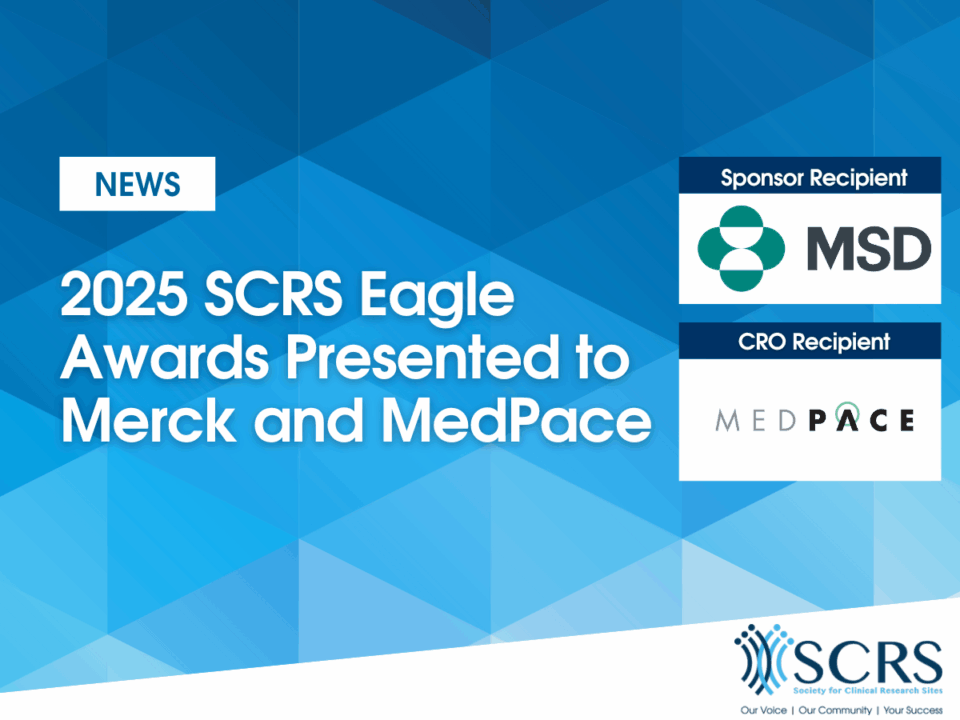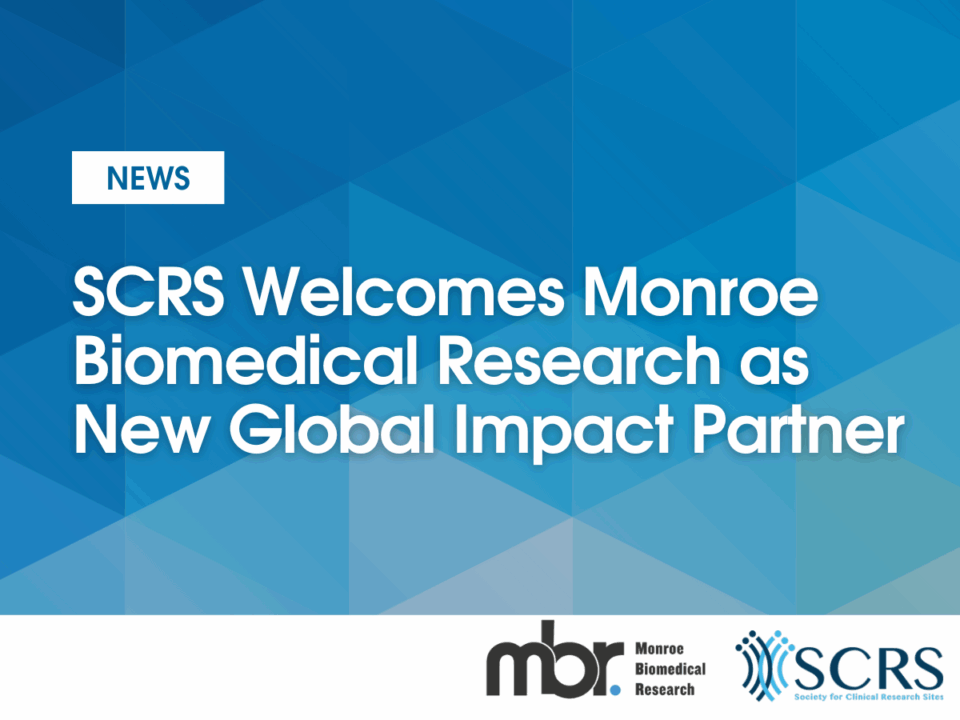SCRS Releases Research Report on the Impact of eClinical Technologies and Related Initiatives on Sites
Contact:
Jessica Knott
Sr. Communications Manager
Society for Clinical Research Sites
410.696.5080 x120
jessica.knott@myscrs.org
FOR IMMEDIATE RELEASE
SCRS Releases Research Report on the Impact of eClinical Technologies and Related Initiatives on Sites
Hanover, MD, October 3, 2019 – The Society for Clinical Research Sites (SCRS) announced today that it has released a research report summarizing the impact of eClinical technologies and related industry initiatives on the global clinical research site community. In collaboration with Oracle Health Sciences, SCRS conducted a survey that gathered related data from sites globally between April and June 2019. Key findings from the research include:
Increasingly negative sentiment toward disparate systems – More than a third of respondents expressed dissatisfaction with current eClinical technologies, which represents a 65% increase from 2016. Not surprisingly, dissatisfaction was found to be higher for sites working with multiple sponsors/CROs that require separate systems and login credentials.
Single sign-on and point of entry cited as priorities – Despite their dissatisfaction, 70% of respondents have no plans to use currently available technologies to address these concerns.
Opportunities and challenges lay ahead as the industry moves from traditional to hybrid studies – While respondents cited greater patient participation (82%) and patient access (71%) as positive anticipated benefits, they cited more systems to be trained in (69%), more usernames and passwords (62%), and fewer sites (47%) and staff (48%) as negative anticipated results.
“There are significant barriers to entry for new sites, which is concerning given the ‘one and done’ syndrome plaguing the industry, which means a site completes a trial and does not pursue future studies,” said SCRS president Casey Orvin. “Site networks can help to reduce some of these burdens by standardizing procedures and enabling new sites to conduct studies, particularly in underrepresented urban areas and population clusters. Sponsors and technology vendors can help by simplifying the technology environment in which sites must work to participate in clinical research.”
“Sites are overwhelmed with too many solutions and ballooning login credentials,” said Jim Kremidas, executive director, ACRP. “Instead of engaging with patients, an inordinate amount of time is spent learning new systems, completing redundant required training and reentering the same data multiple times. Simultaneously, pharmaceutical companies and CROs are left with a fragmented ecosystem of software, hardware, vendors, and processes that ultimately distracts everyone involved from the goals of clinical research.”
Click here to read the full research report.
###
About SCRS
Founded in 2012, SCRS is a global organization that unifies the voice of the clinical research site community to create greater site sustainability. Representing over 9,500 sites in 47 countries, SCRS membership provides sites with a community dedicated to advocacy, education, mentorship and connectivity. SCRS is an influential voice for sites and an active partner in industry-wide initiatives and dialogues focused on improving the clinical research enterprise. Our Voice. Our Community. Your Success. Join the community. Visit MySCRS.org.
About Oracle Health Sciences
Oracle Health Sciences breaks down barriers and opens new pathways to unify people and processes to bring new drugs to market faster. As a leader in Life Sciences technology, Oracle Health Sciences is trusted by 29 of the top 30 pharma, 10 of the top 10 biotech and 10 of the top 10 CROs for managing clinical trials and pharmacovigilance around the globe.



